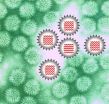(Press-News.org) Banning smoking in public places has helped to cut premature births by 10 per cent, new research shows.
The study of data from parts of North America and Europe where smoking bans have been introduced also showed a 10 per cent fall in hospital attendance for childhood asthma attacks.
The findings reveal that the impact of anti-smoking laws varies between countries but overall the effect on child health around the world is very positive.
Laws that prohibit smoking in public places, such as bars, restaurants and work places, are already proven to protect adults from the health threats associated with passive smoking.
This is the first comprehensive study to look at how anti-smoking laws in different countries and areas are affecting the health of children living in those regions. It is published today in the journal The Lancet.
Less than one sixth of the world's population is currently protected by anti-smoking laws. As a result, 40 per cent of children around the world are regularly exposed to second hand smoke, which claims an estimated 160,000 young lives each year and causes significantly more disability.
Passive smoking can cause babies to be stillborn or born prematurely and is linked to birth defects, asthma and lung infections. Studies have also suggested that being exposed to second hand smoke during childhood may have long term health implications, contributing to the development of chronic diseases like heart disease and diabetes in later life.
The study was led by the University of Edinburgh together with researchers from Maastricht University, Hasselt University, Harvard Medical School and Brigham and Women's Hospital. The researchers looked at over 2.5 million births and almost 250,000 hospital attendances for asthma attacks.
Lead researcher, Dr Jasper Been of the University of Edinburgh's Centre for Population Health Sciences, said: "Our research shows that smoking bans are an effective way to protect the health of our children. These findings should help to accelerate the introduction of anti-smoking legislation in areas not currently protected."
Professor Aziz Sheikh, Co-Director of the Centre for Population Health Sciences at the University of Edinburgh, said: "This research has demonstrated the very considerable potential that smoke-free legislation offers to reduce preterm births and childhood asthma attacks. The many countries that are yet to enforce smoke-free legislation should in the light of these findings reconsider their positions on this important health policy question."
INFORMATION: END
Smoking bans cut premature births and childhood asthma attacks
2014-03-28
ELSE PRESS RELEASES FROM THIS DATE:
What psychosocial factors can help IVF patients?
2014-03-28
The whole 'infertility journey' is an emotional rollercoaster and whilst IVF treatment might be successful for some, not knowing if you will be in the 25 per cent who become pregnant demands some serious coping skills. After reviewing research that explored which psychosocial factors are associated with the emotional adjustment of IVF patients, researchers have highlighted which key psychosocial factors could help identify patients at high risk of stress.
The aim of the study, led by PhD student, Helen Rockliff, from the University of Bristol's School of Clinical Sciences, ...
Public smoking bans associated with reduction in premature births and childhood asthma
2014-03-28
Boston, MA – In the first comprehensive study to look at how anti-smoking laws are affecting the health of children, researchers from University of Edinburgh collaborated with researchers from Maastricht University, Hasselt University, Harvard Medical School and Brigham and Women's Hospital, to conduct a systematic review and meta-analysis examining the effect of smoke-free legislation on child health. They found that the introduction of new laws that ban smoking in public places in North America and Europe has been followed by a decrease in rates of premature births and ...
Using tobacco to thwart infectious disease?
2014-03-27
An international research group led by Arizona State University professor Qiang "Shawn" Chen has developed a new generation of potentially safer and more cost-effective therapeutics against West Nile virus, and other pathogens.
The therapeutics, known as monoclonal antibodies (MAbs) and their derivatives, were shown to neutralize and protect mice against a lethal dose challenge of West Nile virus---even as late as 4 days after the initial infection.
"The overarching goal of our research is to create an innovative, yet sustainable and accessible, low cost solution to ...
How rotavirus infection accelerates autoimmune diabetes in a mouse model
2014-03-27
A combination of genetic predisposition and environmental factors is believed to cause autoimmune (type 1) diabetes. A study published on March 27th in PLOS Pathogens gets at the mechanisms by which rotavirus infection contributes to autoimmune diabetes in a mouse model of the disease.
NOD (for non-obese diabetic) mice are prone to develop diabetes, and infection with rotavirus accelerates onset of the disease. Barbara Coulson and colleagues, from The University of Melbourne, Australia, tested the hypothesis that the virus does this by inducing "bystander activation". ...
Genetic variation linked to heart disease risk through RNA machinery
2014-03-27
Researchers have pinpointed a new mechanism of how natural variation in our DNA alters an individual's risk for developing heart disease by interfering with the ability of a developmental gene to interact with a specialized type of RNA. This work expands on previous work identifying the "hidden" causes of complex disease risk, with the goal of unlocking new pathways and potential drug targets for cardiovascular disease.
This latest study led by Thomas Quertermous, MD at Stanford University and Georg Sczakiel, PhD at the University of Lübeck (Germany) was a joint effort ...
Ancient African cattle first domesticated in Middle East
2014-03-27
Geneticists and anthropologists previously suspected that ancient Africans domesticated cattle native to the African continent nearly 10,000 years ago. Now, a team of University of Missouri researchers has completed the genetic history of 134 cattle breeds from around the world. In the process of completing this history, they found that ancient domesticated African cattle originated in the "Fertile Crescent," a region that covered modern day Iraq, Jordan, Syria and Israel.
In their study published in PLOS Genetics, Prof. Decker (University of Missouri) and a team of international ...
Autoimmune drug may help prevent kidney disease caused by diabetes
2014-03-27
Washington, DC (March 27, 2014) — A drug currently used to treat autoimmune disease may also help prevent the kidney-damaging effects of diabetes, according to a study appearing in an upcoming issue of the Journal of the American Society of Nephrology (JASN). The findings suggest that clinical trials should be designed to test the drug in diabetic patients.
Kidney disease is one of the most serious complications of diabetes. Diabetics who develop kidney disease, or diabetic nephropathy, due to high blood glucose levels may eventually require dialysis or a kidney transplant. ...
Major depression linked with nearly twice the risk of kidney failure in diabetics
2014-03-27
Washington, DC (March 27, 2014) — Major depression may increase diabetes patients' risk of developing kidney failure, according to a study appearing in an upcoming issue of the Clinical Journal of the American Society of Nephrology (CJASN). Additional studies are needed to determine whether treatment for depression can improve kidney health in patients with diabetes.
Individuals with diabetes have a high prevalence of depressive symptoms, which has previously been linked with negative health outcomes such as cardiovascular disease and premature death. Little is known ...
Gulf War illness not in veterans' heads, but in their mitochondria
2014-03-27
Researchers at the UC San Diego School of Medicine have demonstrated for the first time that veterans of the 1990-91 Persian Gulf War who suffer from "Gulf War illness" have impaired function of mitochondria – the energy powerhouses of cells.
The findings, published in the March 27, 2014 issue of PLOS ONE, could help lead to new treatments benefitting affected individuals – and to new ways of protecting servicepersons (and civilians) from similar problems in the future, said principal investigator Beatrice A. Golomb MD, PhD, professor of medicine.
Golomb, with associate ...
Stroke patients should receive customized palliative care
2014-03-27
People recovering from a stroke should have a well-coordinated medical team to personalize care, optimize quality of life and minimize suffering, according to a scientific statement published in the American Heart Association journal Stroke.
The statement is the first in the United States to outline fundamental palliative care for stroke survivors. Palliative care is patient- and family-centered care that improves life by anticipating, preventing and treating suffering.
"The majority of stroke patients need access to some form of palliative medicine," said Robert Holloway, ...

